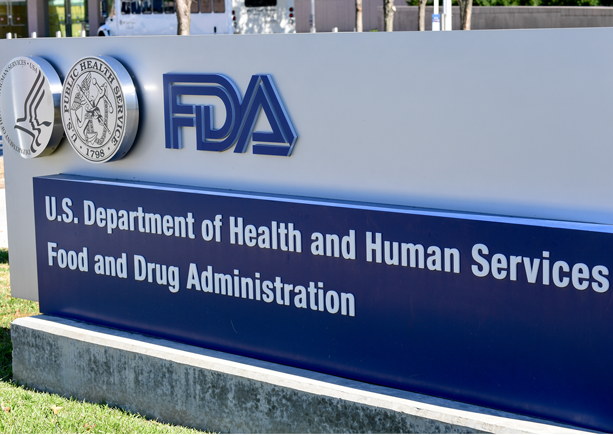Prescription Medicines Guide: Everything You Need to Know
Understanding Prescription Medicines

Prescription medicines play a crucial role in healthcare by treating various conditions. Understanding how these medicines work, including their formulations and dosages, is essential for safe usage and to prevent misuse. Patients can benefit from detailed prescription information to ensure proper administration and adherence to treatment plans. Knowledge of potential side effects and interactions with other medications, including over-the-counter medicines, is vital in maximizing the efficacy of prescription medicines. Consulting healthcare providers for guidance and utilizing resources like symptom checkers can aid in better comprehension of prescribed treatments, including pricing and cost information.
Importance and Role of Prescription Medicines

Prescription medicines are essential for managing various illnesses, tailored to individual healthcare needs. When used correctly, they can enhance quality of life and are diligently monitored by healthcare providers. Seeking guidance from professionals is crucial when dealing with prescription medicines to ensure optimal effectiveness. Remember, the right usage of such medications can significantly impact one’s well-being and treatment outcomes.
Types of Prescription Meds

Commonly prescribed medications encompass a variety of drug classes, spanning antibiotics, antidepressants, and analgesics. Among the prevalent types are cardiovascular agents and antidiabetic drugs. Treatments for neurological conditions such as epilepsy constitute another category, including medications such as acetaminophen, lexapro, and viagra. These medications can interact with other drugs uniquely, underscoring the need for vigilance. Adhering strictly to dosage guidelines is paramount for ensuring their effectiveness, especially for medications like viagra which is commonly used for erectile dysfunction.
How to Use Prescription Medicines Safely

Reading and understanding prescription labels is crucial. Ensure you accurately follow dosage instructions for safe usage. Consider the dos and don’ts of taking prescription medicines seriously. Adhere to the prescribed schedule diligently to maximize effectiveness and minimize risks. Stay informed about potential interactions, especially drug-drug and drug-food interactions. Seek guidance from healthcare professionals if unsure about any aspect of medication usage, including the use of supplements.
Reading and Understanding Prescription Labels

Importance lies in deciphering prescription labels accurately, covering dosages and administration specifics. Vital for error prevention, labels warn about possible side effects and precautions. Consulting healthcare providers for clarification is key. Adherence to label instructions ensures safe and effective medication use.
Dos and Don’ts of Taking Prescription Medicines
Following your healthcare provider’s instructions is vital when taking prescription medications. Adhering to the prescribed dosage and schedule ensures optimal results. Altering your medication routine without medical consultation can be risky. Promptly report any adverse reactions you may experience. Sharing your prescription drugs with others is not recommended for safety reasons.
Commonly Prescribed Medicines and their Uses
Cardiovascular medicines like atorvastatin and amlodipine are commonly prescribed for heart conditions. Diabetes medicines such as metformin help manage blood sugar levels. Neurological disorder medications like gabapentin treat conditions affecting the nervous system. These prescription drugs play a vital role in improving patients’ health.
Cardiovascular Medicines

Managing heart-related conditions such as high blood pressure, cardiovascular medicines play a crucial role in regulating heart function and blood flow. It is essential to consult healthcare providers for precise dosage and administration instructions to ensure their effectiveness and safety. Patients should be cautious about potential drug interactions associated with cardiovascular drugs and strictly adhere to prescribed guidelines for optimal outcomes.
Diabetes Medicines

In managing diabetes, medications play a crucial role in blood sugar regulation. Treatment options, such as insulin injections or oral tablets, aid in controlling the condition effectively. Regular monitoring of blood glucose levels is essential when using these medications to ensure proper management. Additionally, lifestyle modifications like dietary changes and exercise routines can complement the effects of diabetes medicines effectively.
Neurological Disorder Medicines

Managing conditions such as epilepsy and migraines, neurological disorder medicines play a crucial role in symptom control and seizure prevention. Adhering to the prescribed dosage is vital for the best results. It’s important to consult healthcare professionals when considering adjustments to these medications and to discuss potential side effects for appropriate management.
Potential Side Effects of Prescription Medicines

Understanding the potential side effects of prescription medicines is crucial for patient safety. Side effects can range from mild to severe and may vary based on the type of medication. It’s important to be aware of common side effects and how to manage them effectively. Seeking medical attention for severe or persistent side effects is paramount. Monitoring and understanding side effects can enhance treatment outcomes and ensure medication adherence.
How to Handle Side Effects
To effectively manage side effects from medications, consult your healthcare provider for guidance. Improving your overall medication experience involves promptly addressing any adverse reactions. Take necessary steps to alleviate side effects and enhance treatment outcomes. Identifying and managing side effects promptly is crucial for your well-being and treatment success.
When to Seek Medical Attention

Knowing when to seek medical attention is crucial when experiencing severe or persistent side effects from prescribed medications. Consulting a healthcare professional is advisable if any concerns arise regarding the side effects. It’s essential to recognize the need to contact a healthcare provider promptly for any alarming symptoms. In cases of serious or worsening side effects, immediate medical attention may be necessary to address the issue effectively. Timely intervention is key in managing any severe adverse reactions.
Prescription Medicines and Interactions
Understanding how different prescription medicines interact is crucial for patient safety. Drug-drug interactions can occur when multiple medications are taken simultaneously, potentially impacting their effectiveness or causing adverse effects. Similarly, being aware of drug-food interactions is essential as certain foods can alter the way drugs work in the body. By understanding and managing these interactions, healthcare providers can optimize treatment outcomes and minimize risks associated with medication use. Staying informed about potential interactions is vital for ensuring the safe and effective use of prescription medicines.
Drug-Drug Interactions
Awareness of potential drug interactions can prevent adverse effects, altering intended medication outcomes. Consult healthcare providers to grasp possible medication interactions, understanding associated risks. Prioritize discussing drug interactions to avoid unwanted effects. Stay informed about the risks involved in drug combinations, seeking guidance when needed.
Optimizing medication efficacy involves considering potential drug-food interactions that impact absorption. Consulting a healthcare professional can enhance safety and effectiveness by understanding food’s influence on medicines
Prescription Medicines and Special Populations
Special populations, such as pediatrics and geriatrics, necessitate tailored approaches to prescription medicines. Dosage adjustments and monitoring are crucial for their safety and efficacy. Pediatrics often require weight-based dosing, while geriatrics may need dosage reduction due to age-related physiological changes. Furthermore, considering geriatric patients’ potential multiple comorbidities is essential in prescribing medications to prevent adverse drug reactions. Understanding these specialized requirements ensures optimal treatment outcomes for these unique patient groups.
Prescription Medicines in Pediatrics

For pediatric patients, precise dosing and safety are crucial when prescribing medications. Tailored treatment plans with prescription medicines are often necessary due to individualized needs. Dosages for children are commonly determined by their weight and age. Administering prescription medicines to children requires accuracy in dosing. It’s vital to seek guidance from healthcare professionals before giving prescription medicines to the pediatric population.
Prescription Medicines in Geriatrics

In geriatric patients, dosage adjustments and close monitoring are often necessary when using prescribed medications. Age-related metabolic changes can impact how older adults respond to these medicines. Healthcare providers should carefully evaluate potential side effects before prescribing to the elderly. Geriatric populations might be more vulnerable to adverse reactions from specific prescription drugs, highlighting the importance of vigilance and oversight in their medication management.
The Role of FDA in Regulating Prescription Medicines

The FDA plays a crucial role in ensuring the safety and efficacy of prescription medicines in the United States. It oversees the approval process for new drugs, monitors post-market safety, and regulates the labeling and marketing of prescription medications. By collaborating with organizations like the American Society of Health-System Pharmacists (ASHP) and providing resources such as the American Hospital Formulary Service (AHFS), the FDA helps health professionals access reliable drug information. Consumers can stay informed through FDA-approved medication monographs and tools like Micromedex’s symptom checker. Understanding the role of the FDA in drug administration is essential for both health professionals and patients when it comes to safe and effective prescription medicine use.
FDA Approval Process for Prescription Medicines
FDA approval for prescription medicines involves a meticulous process to ensure safety and efficacy standards are met. Extensive testing precedes approval, where clinical trial data undergoes thorough evaluation. The significance of FDA approval lies in concluding that the benefits of the medicine surpass any potential risks. Manufacturers are required to submit comprehensive applications for FDA scrutiny, highlighting the rigorous standards upheld in the United States pharmaceutical industry.
Recent FDA Approvals
Recent advancements in FDA approvals introduce groundbreaking treatments across multiple conditions. Rigorous monitoring ensures the ongoing safety and efficacy of these medications. Approval decisions rely on extensive clinical trial data, granting patients prompt access to innovative prescription solutions. FDA endorsement signifies adherence to stringent regulatory criteria, assuring quality and effectiveness in treatment options.
How Can You Stay Updated about Prescription Medicines?
To stay informed about prescription medicines, follow reputable healthcare news sources, consult healthcare professionals for the latest updates, sign up for FDA alerts, review official FDA communications regularly, and consider joining patient advocacy groups for valuable information.
Conclusion
Prescription medicines play a crucial role in managing various health conditions, but their safe usage is paramount. Understanding prescription labels, potential side effects, and interactions are essential for your well-being. Always follow dosage instructions and seek medical help if you experience adverse effects. Stay informed about FDA regulations and recent approvals to make informed decisions. Your health is precious; handle prescription medicines responsibly for optimal results.
https://accreditnet.urac.org/directory/#/accreditation/MSP010023/info
https://public.govdelivery.com/accounts/USNIHNIDA/subscriber/new
https://www.webmd.com/rheumatoid-arthritis/video/ra-biologic-drugs
